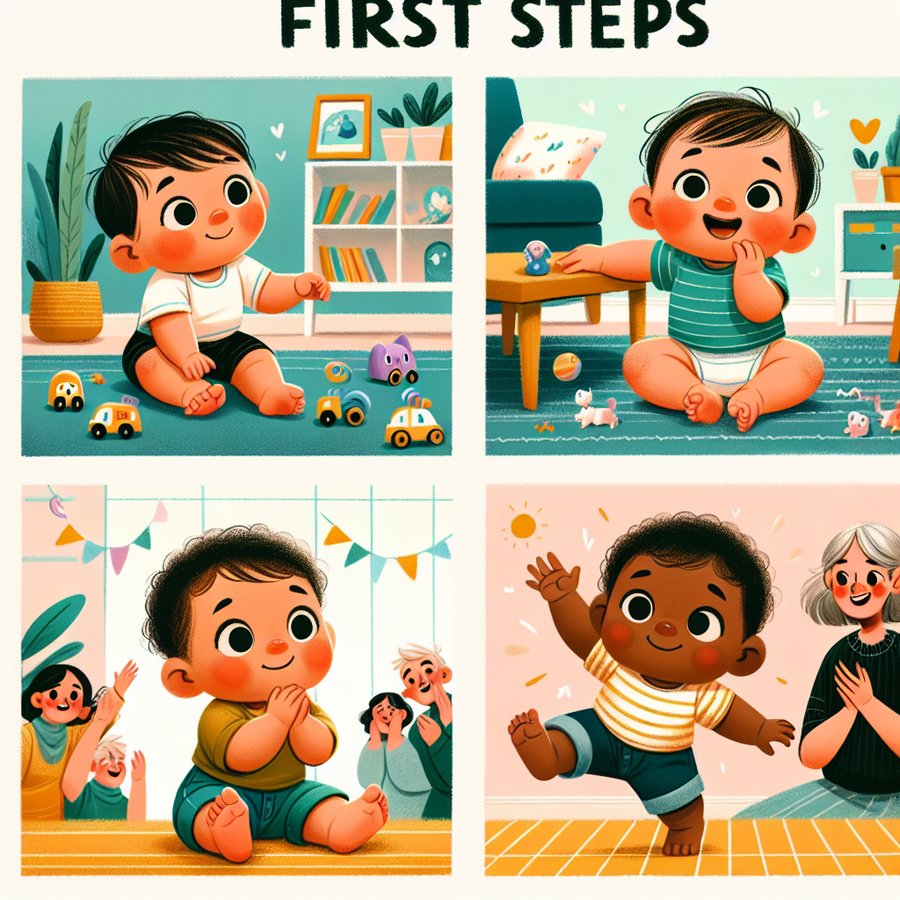Welcome to your go-to Guide to baby’s first steps: Encouraging walking milestones, a pivotal chapter in the adventure of parenting. Witnessing those first wobbly steps is a milestone that fills parents with pride and joy. Understanding and supporting this journey is key to fostering your child’s independence and physical development.
Understanding the Timeline for Baby’s First Steps
Before diving into how to encourage walking milestones, it’s crucial to grasp the typical timeline. Most babies begin to walk between 9 and 18 months. However, every child is unique, and some may walk earlier or later than this range. It’s important to create a supportive environment that encourages physical exploration and movement. Understanding and promoting gross motor skill development in toddlers is essential for this phase.
Initial movements like rolling over, crawling, and standing are precursors to walking. Through these activities, babies develop the muscle strength and coordination needed for walking. Patience and encouragement from parents are pivotal during this time.
Creating a Safe and Stimulating Environment
Ensuring a safe, baby-proofed area is essential for your baby to explore and practice walking without the risk of serious injury. Soft, secure areas where they can practice standing, falling, and eventually, walking, fosters confidence and promotes a willingness to try. Consider integrating engaging elements like outdoor play to boost their physical and cognitive development.
Tools like push toys can also aid in developing the necessary skills for walking by providing support and encouraging movement. These toys should be stable and at the correct height for your baby. Always supervise your baby during these activities to ensure their safety.
Guide to baby’s first steps: Encouraging walking milestones
To actively encourage walking milestones, engage in daily practices that strengthen your baby’s legs and core. Holding their hands and guiding them in taking steps, or encouraging standing by placing toys on higher surfaces, can be beneficial. The activities to promote gross motor skills in younger infants are a foundation for this stage.
Celebrating each attempt, regardless of its success, boosts your baby’s confidence and motivation to keep trying. Positive reinforcement and creating a joyous atmosphere around the act of walking will make your baby more eager to engage in it.
For further reading on enhancing your baby’s development through play, consider exploring encouraging exploration and curiosity in infants and creative play ideas to stimulate a 9-month-old’s brain.
Remember, the journey to walking is a marathon, not a sprint. Your support and encouragement as a parent are crucial in this developmental milestone. Celebrate each step, and soon, your little one will be walking into a new phase of their growth and exploration.
For additional insights into supporting your child’s development, visit milestone checklists for the first 24 months.













